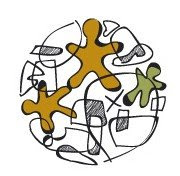A critical review of the judgments 2347/2017 and 2348/2017 by the plenary of the Council of State
With its judgments 2347/2017 and 2348/2017, the Greek Council of State ruled against the annulment applications brought by two Syrian refugees, whose asylum application had been rejected by the Independent Appeals Committees as inadmissible - namely without an examination as to whether they qualify for refugee status according to the 1951 Geneva Convention – because Turkey was designated a “safe third country”, where they can receive appropriate protection pursuant to Article 38 of the 2013/32/EU Directive . It should be noted that, although the provision in question exists in the European law since 2005 (previous Directive 2005/85/EC) and was transposed into Greek law as early as 2008, the Greek administration applied the concept “third safe country” for the first time in March 2016 following the implementation by the Greek government, of the EU-Turkey Statement. The applicants had requested that a reference for a preliminary ruling is submitted before the Court of Justice of the European Union (CJEU) by the national Court, so that the applicable provision is interpreted vis-à-vis the legal and actual situation in Turkey, especially after the state of emergency was declared and the subsequent deviation from fundamental rights, but also with regard to the systematic illegal practices applied by the Turkish government. However, the Council of State with a limited majority of 13 to 12 judges, decided not to refer the case to the CJEU, thus violating not only Article 6 of the ECHR on the right to a fair trial, but also the obligations of the Greek authorities under international and European refugee law. It is striking that the majority imposed its opinion, that the European provisions are clear, without providing any justification, despite the fact that the mere existence of a minority of 12 judges clearly highlighted that the interpretation of the aforementioned provisions was by no means obvious beyond any reasonable doubt, as required by the CJEU.


